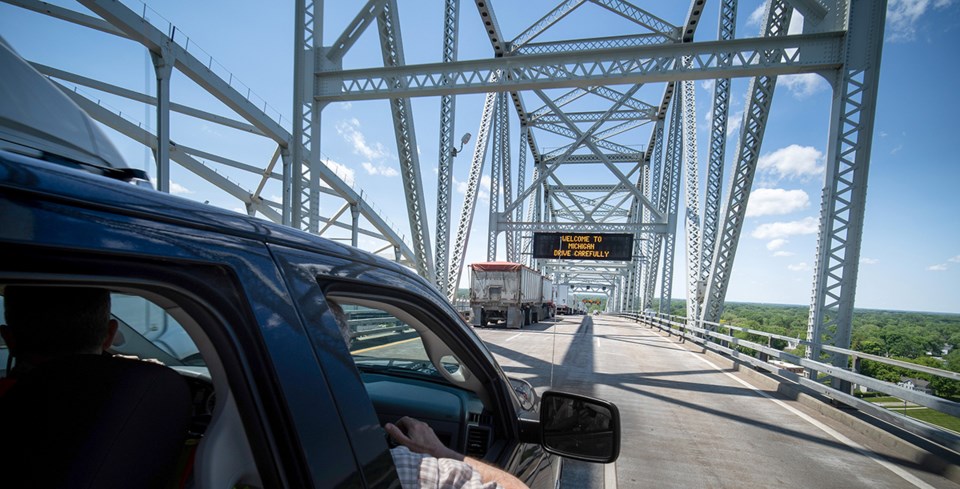Tara Jeffrey
Federal labour officers are looking into claims of unsafe work condition at the Blue Water Bridge where surging COVID-19 cases has led to an ongoing work refusal, the Customs and Immigration Union says.
It began on Dec. 27 when 11 members of the CIU exercised their right to refuse unsafe work “due to management not following up to date public health rules and instructing employees to report to the workplace who should have been in isolation,” CIU national president Mark Weber said in an email to the Journal.
Twenty-five of the approximately 200 employees at the bridge had tested positive for COVID-19 over the past ten days, he said this week.
“Many of these cases are due to workplace exposure as the members had no other exposures other than working with positive co-workers.”
Weber said management failed to report lost time and failed to contact trace, “in addition to instructing officers they could report to work when they should have been isolating according to public health guidelines,” he said.
Front-line border officers are dealing with an unprecedented number of COVID-positive travellers, Weber added.
COVID-positive travellers are required to report to Secondary where officers gather their documents and contact the Public Health Agency of Canada, either in person or via phone, he said.
“Officer exposure to positive travellers has seen a significant increase in recent weeks.”
Officials with Employment and Social Development Canada are looking into the situation.
“The Labour program has been made aware of a possible health and safety issue at the Blue Water Bridge in Sarnia, and is determining what compliance and enforcement actions, such as an investigation or inspection, are required,” said Saskia Rodenburg, a media relations spokesperson.
“When there is a risk of exposure to COVID-19 in the workplace, the workplace parties (employers, employees, health and safety committees and representatives) must identify and assess the risk and implement proper preventative measures through their hazard prevention program.”
Rodenburg said for confidentiality reasons the Labour program can’t comment on specifics during an inspection or investigation.
“The health and safety of Canada Border Services Agency (CBSA) officers and staff is of utmost importance to the Agency,” CBSA spokesperson Allan Donovan stated in an email, noting the agency works closely with Health Canada, employees and the union to ensure appropriate health and safety measures are in place to limit the spread of COVID-19.
“It is important to note that when a positive COVID-19 case is identified within the CBSA, a notice is sent out to all impacted staff in the workplace so that proper measures can be taken as directed by public health.
“Any employee subject to Part II of the Canada Labour Code has the right to refuse dangerous work, as long as they have reasonable cause to believe that it presents a danger as defined by the Code.”
